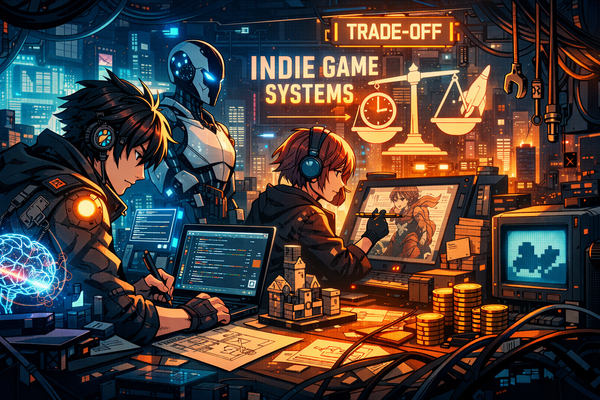AI-Powered NPCs: Creating more realistic characters for indie games
Non-playable characters (NPCs) have always been a crucial part of game worlds, helping to build immersive experiences. However, creating realistic and engaging NPCs has traditionally been a complex task that requires extensive scripting. With advancements in AI, indie developers can now leverage machine learning and generative models to craft NPCs that are more dynamic, responsive, and lifelike. This article explores how AI is transforming NPC design and what it means for the future of indie games.
1. The Evolution of AI-Powered NPCs
AI in gaming has come a long way from simple, scripted characters to complex NPCs that can adapt to player actions. For example, modern AI models can analyze in-game events and player behavior, adjusting NPC responses in real-time. Games like Red Dead Redemption 2 and The Witcher 3 have set benchmarks by using AI to simulate NPC routines, making the game world feel alive and reactive. These NPCs engage in tasks, respond to the environment, and interact with players based on complex behavior patterns (NeuroLaunch.com, Whimsy Games).
2. Techniques for developing realistic NPC behavior
AI techniques such as machine learning, neural networks, and natural language processing (NLP) have opened up new possibilities for NPC design. Here are some of the key methods:
- Behavioral trees & state machines: These are common frameworks that allow NPCs to perform a range of actions based on different conditions. For example, a state machine might dictate an NPC’s shift from passive to aggressive states based on player proximity.
- Adaptive learning: AI algorithms can learn from player actions, allowing NPCs to adjust their behavior dynamically. This means NPCs can change tactics, adapt to different playstyles, and even remember past interactions to shape future responses (NVIDIA).
- Natural language processing (NLP): NLP models are being used to create more natural and engaging dialogues. By understanding and generating context-sensitive responses, NPCs can now participate in more meaningful conversations with players, enhancing immersion. Ubisoft's NEO NPCs, for instance, utilize NLP to provide dynamic dialogues, creating an impression of genuine interaction.
3. Emotional intelligence and personality in NPCs
One of the emerging trends in AI-powered NPCs is the integration of emotional intelligence. By simulating emotions, NPCs can respond to players with more depth and nuance. For example, they might show frustration, joy, or surprise based on the player’s actions. NVIDIA’s ACE for Games has introduced a suite of tools that help integrate emotional intelligence into NPC behavior, allowing characters to express a wide range of feelings and adapt their responses to player interactions.
This technology enhances the role of NPCs, making them more than just quest-givers or background characters. Instead, they become integral to the player’s experience, capable of forming more profound connections with the players. Imagine a companion NPC that reacts emotionally when you succeed or fail in a mission, creating a stronger narrative bond.
Related Reading: To understand how storytelling can be enhanced with complex characters, see "Why Storytelling Will Define the Next Era of Indie Games".
4. Challenges and ethical considerations
While AI has transformed NPC design, it also brings challenges. Developers need to balance the complexity of AI-driven behaviors with performance constraints, especially in games with numerous NPCs. More sophisticated AI systems require significant processing power, which can impact game performance.
Additionally, ethical concerns are emerging around the use of AI in games. For example, how should developers handle sensitive themes when designing NPCs? Ensuring that AI-generated behavior does not perpetuate stereotypes or unethical scenarios is crucial. Developers must prioritize responsible AI design, setting guidelines to avoid unintended consequences in NPC interactions.
Future Prospects
The future of AI-powered NPCs looks promising, with ongoing advancements in machine learning and generative models. Developers are exploring new frontiers, such as mixed reality, where NPCs can interact with players in both virtual and augmented spaces. Emotionally intelligent NPCs that understand and adapt to human feelings could revolutionize gaming, blurring the lines between virtual and real-world interactions.
AI-powered NPCs are reshaping how we experience games, offering more immersive and dynamic gameplay. For indie developers, these technologies unlock new possibilities, enabling smaller teams to create complex characters that can rival those in AAA games. While challenges remain, the integration of AI into NPC design is set to bring about a new era of gaming, one where every character feels alive, unique, and engaging.




